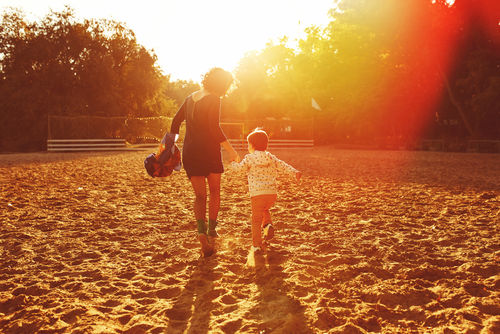I have four older sisters. Let me rephrase that. I am blessed to have four older sisters! The years of unsolicited advice and friendly competition aside, my sisters are for me great sources of inspiration. I think about my sisters often as I go through the world. Theirs are the voices in my head.
Here in L.A., we have a daunting task ahead of us. We are called to build a culture of life in a sprawling city more diverse and complex than any other. An archdiocese with 5 million Catholics — it can be overwhelming. And, it can be tempting to fall victim to the rhetoric of the culture wars, the “us vs. them” outlook.
At those moments, I think about my sisters. Their experiences have taught me two very important lessons that guide me.
The first lesson is that we are far stronger together than we could ever be alone.
The pro-life movement has unfortunately become defined by the culture as nothing more than “anti-abortion.” And, while opposition to abortion remains the heart of the pro-life movement, our strength comes from being “for” the good, not just “against” the bad.
My sister Janice and her family live in Alaska. They hunt and fish; they hike and kayak. They also, for a number of years, served as a foster family to kids and babies in need of a good home.
It wasn’t easy.
They had some rough patches.
I remember one little girl they were especially attached to who they had to let go. Janice now works as a teachers’ aide for children with special needs. She gives her love to these students whom others might overlook.
My sister Carol and her family live in Tennessee. They adopted three children, the youngest with severe special needs. Carol volunteered at a pregnancy center for years.
At one point they opened their home to a young mom who lived with them until her baby was born. Carol’s kids helped this mom choose an adoptive family for her baby. You’ll never hear kids talk with more love and gratitude about their own birth moms than these kids do.
My sisters’ stories are not heroic. They are probably not so different from stories in your family. Their importance is undeniable when we add them together.
You and I may not be called to adopt children or help kids with special needs. But others are. Only through combining our efforts can a culture of life truly be created.
The second lesson is: don’t worry about what to do; God provides
People ask me all the time what they can do to get involved. The first thing I always ask is, “Who in your family or your community needs help right now?” Look around. It is perfectly all right to get involved in a big campaign, but there might be someone in your family, or next door, whom God wants you to help first.
My sister Diane and her family live in Yuba City. With her four children, she volunteered at pregnancy centers, attended rallies and prayer vigils and walks for life.
When her daughter left for college, she was looking forward to an empty nest, time spent with her little dog and a latte. Instead, she has offered to take care of her two granddaughters while her son and his wife work. Her schedule once again revolves around naptime.
My sister Laura and her family live in Morgan Hill. She is a nurse. She started doing hospice nursing as a great way to work around her kids’ schedules and be flexible for sports practice and afterschool activities.
But, it takes a special kind of nurse to provide comfort to the dying. These patients and their families need support and compassionate care to maintain dignity at the end of life.
Laura has a big heart. She treats these patients as she would her own family. If you want to know what authentic death with dignity looks like, talk to a hospice nurse.
These are not the stories of pro-life heroes, and that is exactly the point. Too often the heroes of the pro-life movement are only the people who lead large events or outspokenly fight legislation.
Don’t get me wrong. We need those people. But they are only effective because of the everyday heroes who allow their lives to be used by God to create a culture of life right in their own families and neighborhoods.
For many people, the term “pro-life” brings to mind images that don’t fit with their images of themselves. They don’t want to march; they don’t want to protest.
As Christians, we are asked to see Christ in the faces of everyone we encounter. We are called to see the very Jesus we receive in the Eucharist in each person — the unborn, the immigrant, the foster child, the elderly, even our cranky family members.
And that reality makes our actions different; makes them united with each other’s and efficacious because they are serving the body of Christ.
On this Mother’s Day, I would like to thank the particular work of mothers — the most pro-life work in the world. I know that much of mothering is mundane, even boring. It’s certainly frustrating!
But, we also know that the work moms do has the very best chance of changing the world for good. Of making each person realize his or her dignity and value.
How do I know? Because of the example set by my own mom.
My sisters and I grew up with a mom who taught us through selfless example to care for everyone God put in our paths. Together we visited the sick, fed the hungry and homeless, prayed outside of abortion clinics.
We helped our neighbors and our family members in need. Summer days were spent at convalescent hospitals visiting sick and elderly parishioners and sewing baby blankets for the local pregnancy center.
My family and I are blessed that my mom now lives with us. In her golden years, she is sharing her unconditional love with my boys — a gift I pray they will someday fully appreciate and that they will recognize as the best pro-life activism of all.
Happy Mother’s Day!

